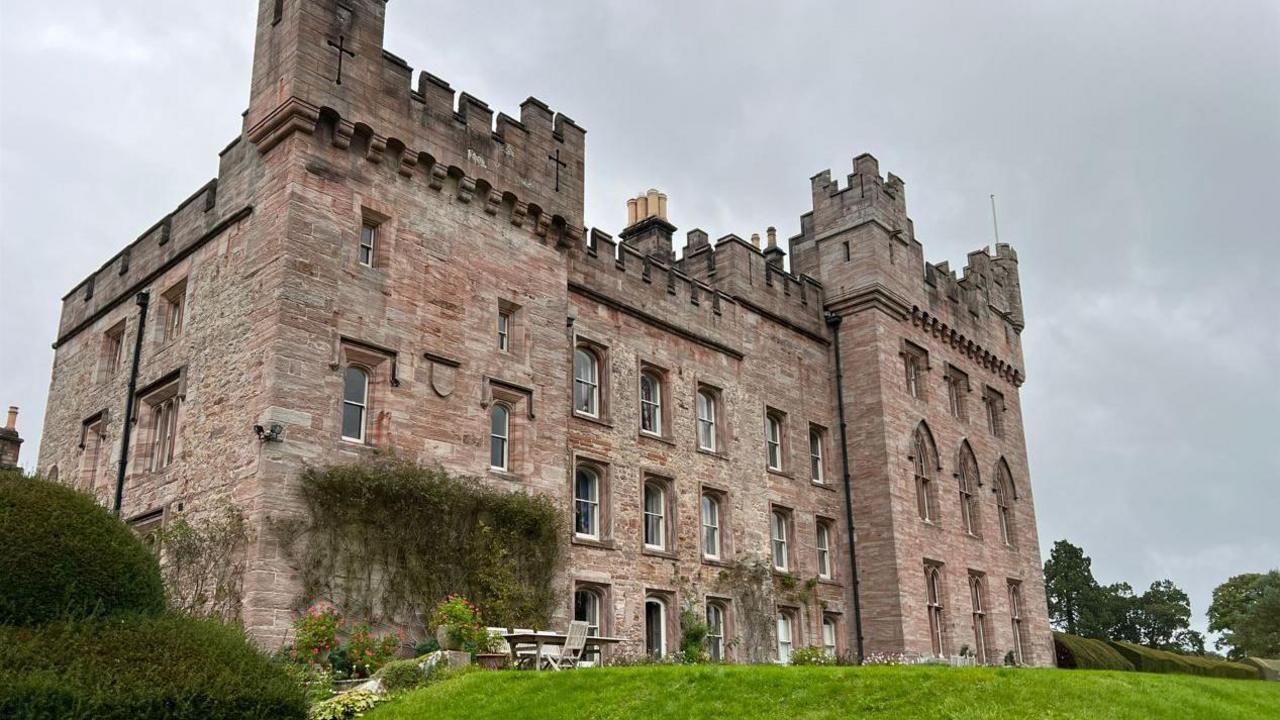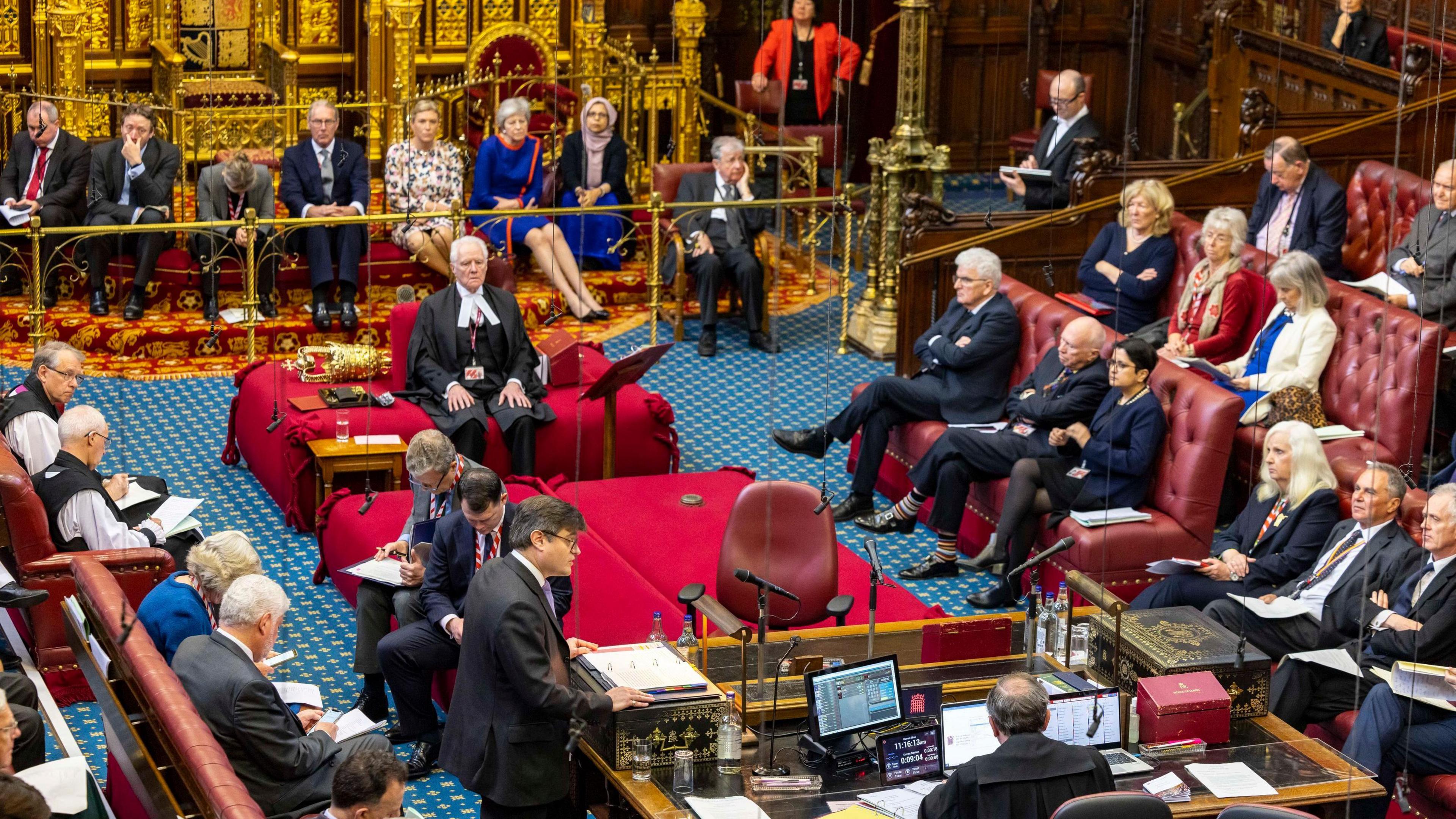Peer criticises 'crude' House of Lord reform plans

Lord Inglewood admitted hereditary peers were an anomaly in the modern world, but said current reform plans were crude
- Published
A hereditary peer says he feels "hurt" by the prospect of losing his seat in the House of Lords.
Lord Inglewood, who lives at Hutton-in-the-Forest near Penrith, Cumbria, said the government’s plans to remove peers who inherited their titles were "crude".
Labour ministers introduced a parliamentary bill to remove hereditary peers from the upper chamber in September, saying their role in law-making had "lasted too long".
Minister for the Constitution, Nick Thomas-Symonds, has argued hereditary peerages allow people to vote on "laws in Parliament by an accident of birth".
Richard Fletcher-Vane, 73, is the 2nd Baron Inglewood and a former Conservative minister and Member of the European Parliament.
He now sits on the red benches as a cross-bencher.
Lord Inglewood told BBC Politics North: "I don't think anybody enjoys being sacked, particularly if the reason for it, which curiously enough seems to be the identity of my father, is not a very convincing one."
He defended the contribution made by hereditary peers, adding that some made "significantly bigger contributions than quite a lot of life peers".

Lord Inglewood lives in Hutton-in-the-Forest
But he acknowledged their role in Parliament was outdated.
"I think it is an anomaly in the modern world. I think it is important is that we find a way that evolution takes place and, at the same time, it works in a seamless way. And what is being proposed is crude."
He added: "What we are seeing is not a reform of the House of Lords, it’s a tweaking on a journey which has probably got quite a long way to go."
Labour’s election manifesto, external said reforming the House of Lords was "essential" and claimed it was too large and many peers failed to serve democracy.
Labour ministers say legislation removing hereditary peers from the House of Lords will complete a process started by the last Labour government, which removed all but 92 of them from the upper chamber.
Minister Thomas-Symonds said: "The hereditary principle in law-making has lasted for too long and is out of step with modern Britain."
The government plans to consult on further reforms to the House of Lords, including a mandatory retirement age of 80.
Labour’s election manifesto also promised to replace the House of Lords in the long-term "with an alternative second chamber that is more representative of the regions and nations".
Follow BBC Cumbria on X, external, Facebook, external, Nextdoor and Instagram, external. Send your story ideas to northeastandcumbria@bbc.co.uk.
Related topics
- Published6 September 2024
